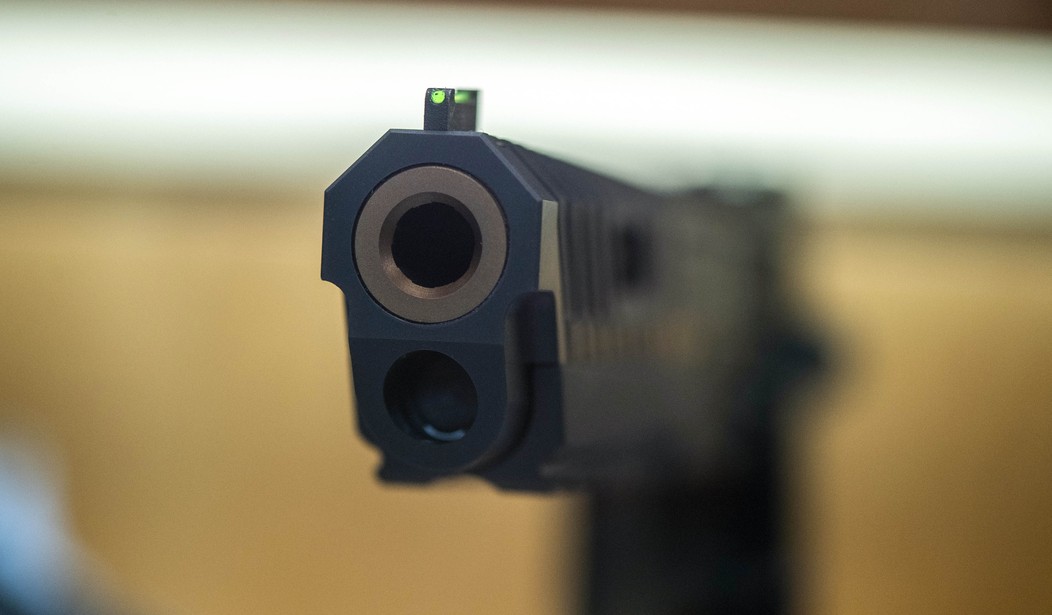President Donald Trump, who imposed punitive tariffs on Mexico this week, complains that our southern neighbor is not doing enough to stop illegal drugs from crossing the border. Mexico has a similar complaint about the United States and guns, as reflected in a case that the Supreme Court heard on the same day the tariffs took effect.
Officially, the Mexican government sued American gun manufacturers, blaming them for "aiding and abetting" the trafficking of firearms to drug cartels. But its real beef is with the Second Amendment, which prohibits the sort of sweeping gun restrictions that Mexican officials think public safety requires.
Although the Mexican Constitution notionally protects "the right to keep arms at home," it gives the government wide latitude to decide which firearms civilians may own. Mexicans can legally buy authorized weapons from only a single outlet in Mexico City, all firearms must be registered with the government, and permission to carry guns in public for self-defense is nearly impossible to obtain.
In the United States, by contrast, the Constitution guarantees "the right of the people to keep and bear arms," which the Supreme Court has said rules out policies such as banning handguns and requiring that people demonstrate a "special need" to carry them outside the home. The court also has said the Second Amendment covers weapons "in common use" for "lawful purposes like self-defense."
Smith & Wesson, one of the gun makers sued by the Mexican government, says that contrast is the subtext of this case. The lawsuit, it notes, seeks not only $10 billion in damages but also "extensive injunctive relief imposing new gun-control measures in the United States," including "universal background checks," bans on "assault weapons" and magazines that hold more than 10 rounds, and "strict limits on 'multiple sales' of firearms."
Recommended
Mexico "makes no secret that it abhors this country's approach to firearms," Smith & Wesson says. "In essence, Mexico seeks to use Mexican tort laws to regulate how firearms are made and sold in the United States."
The main barrier to that strategy is a 2005 federal law that generally bars tort claims against gun manufacturers, distributors or dealers based on "the criminal or unlawful misuse" of their products. Last year, the U.S. Court of Appeals for the 1st Circuit nevertheless allowed Mexico's lawsuit to proceed based on an exception to that rule.
The exception applies when a business "knowingly" violates a state or federal gun law and that violation "was a proximate cause of the harm for which relief is sought." Yet Mexico does not allege that gun manufacturers failed to comply with any relevant state or federal regulations.
Instead, Mexico objects to longstanding, perfectly legal business practices that it says have encouraged and enabled drug cartels to obtain American-made firearms. Those practices, Smith & Wesson notes, include manufacturing and promoting "America's most popular rifle, the AR-15"; producing "large-capacity" magazines, "which are in fact standard-capacity magazines"; and participating in the federally authorized three-tier gun distribution system, in which manufacturers sell firearms to wholesalers that supply them to retailers.
According to the lawsuit, manufacturers should have foreseen that some portion of those guns -- about 2%, Smith & Wesson estimates -- would end up in Mexico, and they should have done more to prevent that outcome. That theory of liability, Smith & Wesson says, amounts to "an eight-step Rube Goldberg" contraption that stretches the meaning of "proximate cause" and "aiding and abetting" beyond recognition.
Mexico maintains that U.S. gun manufacturers have been openly and knowingly breaking the law for decades. If so, it is a mystery why no law enforcement agency has ever held them to account.
This lawsuit aims to reshape the U.S. gun industry directly, through a court order forbidding the practices that offend Mexico. It also aims to do so indirectly by reviving a liability threat that Congress rightly recognized as a danger to the constitutional rights that firearm manufacturers enable Americans to exercise.

























Join the conversation as a VIP Member